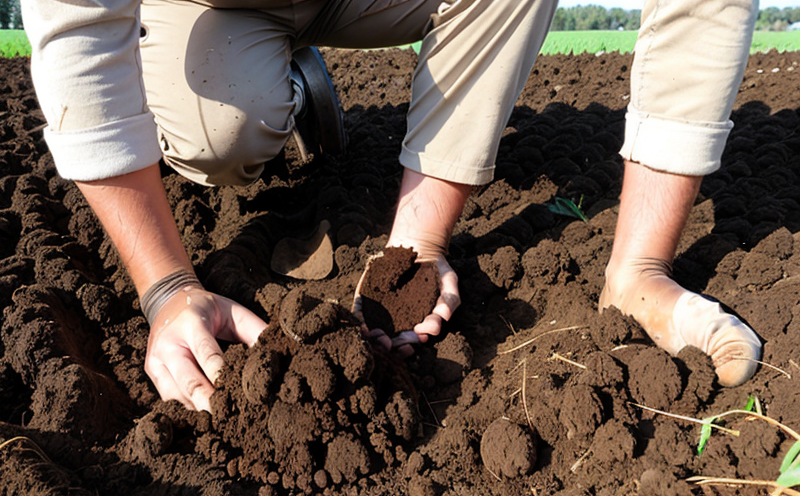Soil Electrical Conductivity (EC) Testing
The Soil Electrical Conductivity (EC) Test is a critical procedure used to assess the salinity and nutrient content of soil. This test provides valuable insights into the health and fertility of agricultural soils, which are essential for optimizing crop yields and maintaining sustainable farming practices.
Electrical conductivity measures the ability of water in soil to conduct electrical current. The measurement reflects the total amount of ions present, including salts, bicarbonates, chlorides, sulfates, and other dissolved minerals. High EC levels can indicate high salinity, which may hinder plant growth by reducing available water for plants or causing toxicity.
For agricultural applications, understanding soil EC is crucial because it helps farmers adjust irrigation practices, fertilization schedules, and overall management strategies to enhance productivity while avoiding environmental damage. This test plays a pivotal role in ensuring that soils are optimized for crop cultivation, leading to better harvests and reduced water usage.
The testing process typically involves collecting soil samples from various depths within the root zone of crops. Samples are then analyzed using an EC meter or probe, which provides immediate readings on screen. These measurements can be used to map out variations in EC across fields, helping farmers make informed decisions about where to apply specific treatments.
Standardization and accuracy are paramount when performing soil EC tests. Laboratories adhere strictly to international standards such as ISO 17894:2015 for precision measurement of electrical conductivity in soils. Proper calibration of equipment ensures reliable results that can be trusted across different locations and conditions.
Why It Matters
Understanding soil EC is crucial for several reasons:
It aids in assessing the suitability of land for specific crops, ensuring optimal growing conditions.
EC data helps identify areas where irrigation efficiency could be improved, reducing water waste and associated costs.
This information assists in diagnosing potential issues related to soil salinity or contamination, allowing timely corrective actions.
In summary, by providing precise measurements of dissolved salts and other minerals, the Soil EC Test supports informed decision-making processes that directly impact agricultural productivity and sustainability efforts.
Applied Standards
| Standard | Description |
|---|---|
| ISO 17894:2015 | Method for the determination of electrical conductivity in soils. |
| ASTM D1445-14 | Standard test method for measurement of soil electrical conductivity using a hand-held meter or probe. |
Why Choose This Test
The Soil EC Test offers quick, accurate assessments that can be used to guide immediate management decisions.
It provides comprehensive data on soil health and composition, which is essential for developing long-term sustainable agricultural practices.
Selecting a laboratory that specializes in this type of testing ensures reliable results and adherence to industry best practices. Our team uses advanced equipment calibrated according to international standards, ensuring consistent accuracy across all tests conducted.





